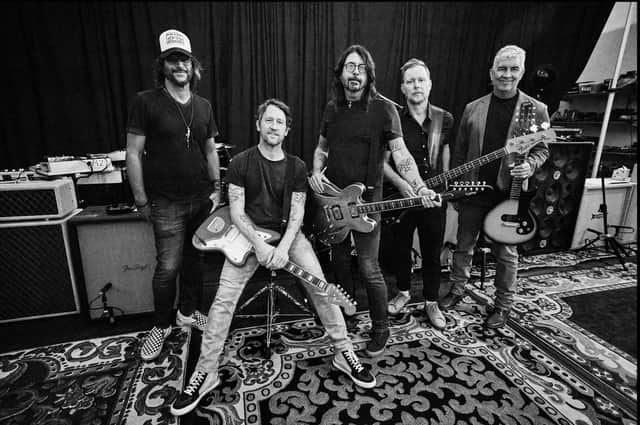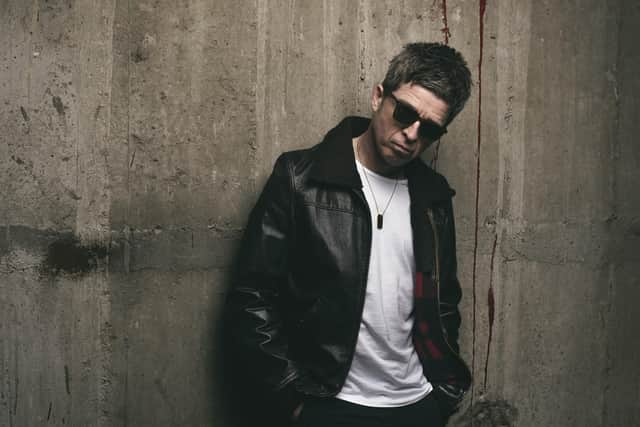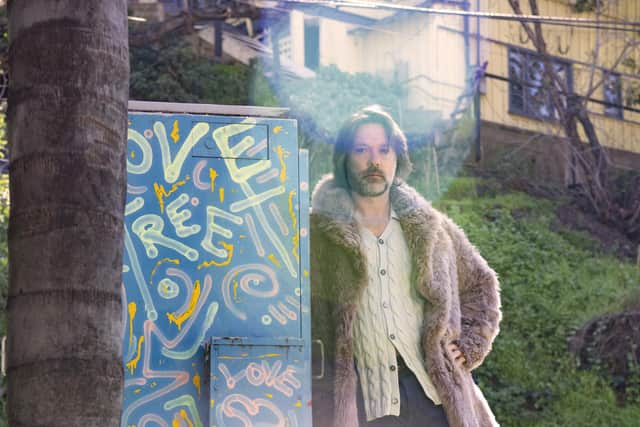Album reviews: Foo Fighters | Noel Gallagher's High Flying Birds | Rufus Wainwright | Roseanne Reid


Foo Fighters: But Here We Are (Roswell/Columbia) ****
Noel Gallagher’s High Flying Birds: Council Skies (Sour Mash Records) ***
Rufus Wainwright: Folkocracy (BMG) ****
Roseanne Reid: Lawside (Last Man Music) ***
Last year Foo Fighters suffered the sudden death of drummer Taylor Hawkins, a huge character in rock music. Still reeling from the loss of his soul brother, frontman Dave Grohl was doubly bereaved when his mother Virginia died a few months later. Understandably, the Foo machine ground to a halt for a time but, as the band’s 11th album attests, they have returned oddly invigorated, with Grohl stepping back behind the drumkit to pay tribute to their fallen pal across a succession of beefy, epic, melodic tunes which alternate between soft, bare expression and galloping howls of anguish.
Advertisement
Hide AdAdvertisement
Hide AdAs the album title suggests, the lyrics are pointed, but with enough universality for the listener to make what they will of the sentiments. “There are times I need someone, there are times I feel like no one,” runs one pithy couplet on the spirited Under You. The affecting simplicity prevails on the alt.pop track Hearing Voices: “I’ve been hearing voices, none of them are you”, while The Glass is as emotionally raw, sad and touching as it comes: “I had a person I loved and just like that I was left to live without him.” What else need be said?
The more esoteric moments include a duet with daughter Violet on Show Me How and The Teacher, ten powerful minutes where galloping drums give way to a proggy middle section and then a pummelling, repetitive, increasingly distorted “goodbye”. But the final word comes in the form of Rest, a beautiful valediction inspired directly by Hawkins’ funeral.


The equally efficient Noel Gallagher can’t really compete with Grohl on this form but his latest High Flying Birds album, named after a book by artist Peter McKee and encased in a brooding sleeve photo of the original location of Man City’s Maine Road stadium, is a relatively subtle affair.
The pleasant strum of the title track augurs well with its breezy retro quality, carefree brass and swooning strings. Regular guest Johnny Marr turns up for the space pastoral Pretty Boy and Noel’s favourite track, the prog pop reverie Dead to the World, has even received a concessionary thumbs up from brother Liam on Twitter.
Easy Now and Trying To Find A World That’s Been And Gone should placate those looking for standard issue Oasis vibes, and Love is a Rich Man shakes some action, but Council Skies broadly represents another small step away from Gallagher’s musical past.
Rufus Wainwright, in contrast, dives right back into his family’s folk heritage on his latest album, a covers collection of duets featuring top drawer collaborators, all of whom bring their A game, from John Legend’s soulful take on Peggy Seeger’s Heading For Home to Chaka Khan’s sober bluesy rendition of Cotton Eyed Joe, Brandi Carlile’s eminently plaintive turn on Down in the Willow Garden to Anohni’s unmistakeable quaver on Wainwright’s own heart-wrenching Going to a Town.


Wainwright’s limpid solo rendition of Shenandoah suggests he doesn’t really need any help to mine the emotion of these songs but it is a joy to hear Susanna Hoffs and Sheryl Crow having a ball on a faithful version of Mamas and the Papas’ Twelve Thirty (Young Girls Are Coming To The Canyon) and to lean into the Wainwright family gathering on Wild Mountain Thyme.
Advertisement
Hide AdAdvertisement
Hide AdRoseanne Reid’s latest album is named for the district of Dundee in which she lives with her wife and son but is pure acoustic Americana in spirit – mostly gentle and understated but with room for the bluegrass-flavoured canter of Mona Lisa, the Caledonia soul of Call It Love and rootsy lament Shine On, written in response to the death of TV presenter Caroline Flack.
CLASSICAL
Kerensa Briggs: Requiem (Delphian) ****
One of the joys of the Delphian label is its willingness to take a punt on upcoming composers. In this case its “portrait of premieres” spotlights Kerensa Briggs, a graduate of King’s College London, now in her early thirties. The main feature is her Requiem, performed by the choir of her alma mater, whose angelic homogeneity reveals a composer of deep-rooted sincerity and, to some extent, unfashionable conservatism. Based on Gregorian chant, what transpires is a mellifluous stream of consciousness, a modal tapestry clearly influenced by the French sacred music of, say, Duruflé and his contemporaries. Under director Jonathan Fort, and accompanied by organist Richard Gowers, this stylish choir find genuine warmth in a work that clearly comes from the heart, but just occasionally loses its focus. The album ends with a series of shorter works, including a rather beautiful Magnificat and Nunc Dimittis, pairing of The Windsor Service. Ken Walton
JAZZ
Joe Lovano Trio Tapestry: Our Daily Bread (ECM Records) ****
They may draw upon 12-tone structures, but there’s nothing constrained or arid about this third album by saxophonist Joe Lovano’s deeply empathetic Trio Tapestry with long-time associate drummer Carmen Castaldi and renowned free-jazz pianist Marilyn Crispell. Unhurried, richly toned and textured, this profound and often haunting music sets out its tonal credo in the opening All Twelve with stealth from Crispell and Castaldi before Lovano's tenor sax murmurs its way into the conversation. The gongs bookending Grace Notes sets an incantatory vibe, further heightened by Crispell’s sonorously rippling piano and Castaldi’s background susurrus, while Lovano’s tarogato (a folk clarinet) teases out soprano-sax-like phrases. The title track is a winsome, ballad-like melody introduced expansively by Crispell and dwelt on fondly by Lovano, who takes a dreamy solo tenor excursion in One for Charlie, his heartfelt tribute to the late, influential bassist Charlie Haden. Jim Gilchrist